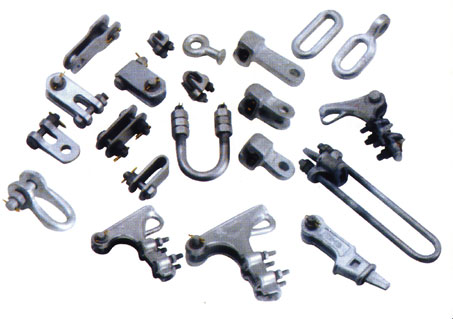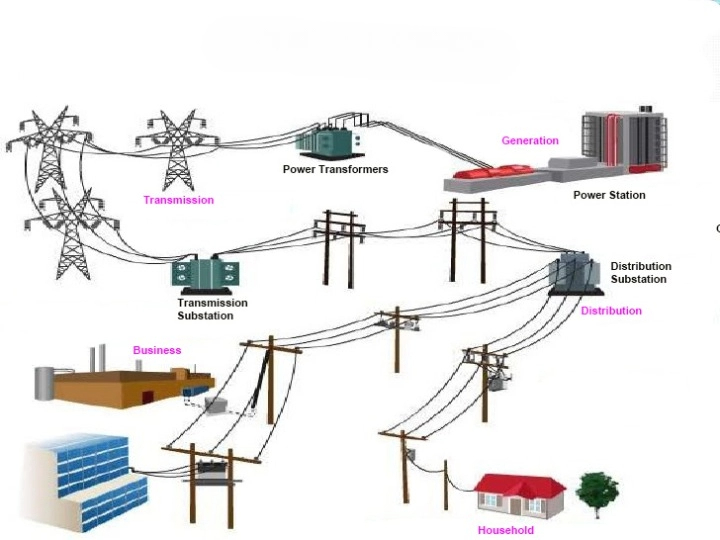
Despite the global concerns, nuclear energy is a form of nuclear energy that could promote the transition to clean energy. In 2024, countries like Argentina and Brazil will have established nuclear energy programs that contribute to their energy security. Nuclear energy helps the countries to balance energy security, economic growth, and decarbonization. Peru and Chile have medium-development nuclear energy projects. Venezuela and Uruguay have emerging development, while Paraguay, Ecuador, and Bolivia have isolated nuclear energy development. Nuclear energy can serve in electricity generation, research and development (R&D), and medical isotopes for diagnostic purposes. However, the use of nuclear energy has been limited in South America due to several concerns. This includes environmental, economic, and technological advancements in renewable energy. Nuclear power plants use overhead line connectors to connect the electrical cables from the plant to the transmission grid.
Overhead line connectors have specific designs to handle the high voltages and currents generated by the nuclear power plants. Most components used include compression connectors, crimp connectors, and swaged connectors. Overhead line connectors for nuclear power plants must withstand the high voltages produced by the plants. They should also be reliable, corrosion-resistant, and compatible with the types of conductors used in the power plant. Let’s uncover the reliability and concerns of nuclear energy power plants. We will also dive into how overhead line connectors help address some of these concerns in South America.
Reliability of nuclear energy in South America
Countries that adopted the development of nuclear energy enjoy the many benefits it has to offer. In Argentina and Brazil, nuclear energy plays a vital role in their energy mix and security. With continued investments in technology upgrades and regulatory oversight, nuclear energy could remain a reliable component in South America’s energy mix. There are also several concerns about nuclear energy in the region that could hinder its deployment. Also, overhead line connectors help integrate nuclear power into the grid to ensure grid flexibility and a reliable mix of power. Below are some of the factors affecting nuclear energy reliability and some of the concerns.

- Consistent base load power – nuclear power plant operates for extended periods. This provides a stable and consistent base load of electricity. This makes nuclear energy a reliable source for meeting electricity demand in the region. For instance, the Atucha reactors in Argentina operate with high capacity to meet the energy demands.
- Grid stability and renewables – unlike solar and wind energy, nuclear provides a non-intermittent power supply. Nuclear energy helps in ensuring grid stability during low renewable energy production.
- Operational efficiency – nuclear power plants in South America have undergone regular upgrades and maintenance. This is to ensure their reactors are kept up to modern standards.
- Reliability challenges – there are several factors that could affect the reliability of nuclear energy in South America. These include aging infrastructure, political and economic instability, and supply expertise.
- Safety and regulatory framework – South American countries have robust regulatory bodies. They help to ensure the safe and reliable operation of nuclear plants.
Overhead line connectors addressing the concerns about nuclear energy
There are several factors that contribute to the concerns about nuclear energy in South America. They include environmental, political, and economic issues. These issues influence public perception and government policy decisions. While nuclear energy has potential for reducing carbon emissions and providing reliable baseload power, it also comes with these challenges. Additionally, these challenges include safety, waste management, high costs, and public opposition. Overhead transmission lines help in addressing these challenges in several ways. They help ensure infrastructure reliability, grid stability, and efficient power transmission. At TTF Power Systems, we are a one-stop shop for utility pole hardware fittings, transmission line accessories, and power line construction equipment, offering our customers the industry’s widest selection of products, exceptional value, and professional service. Here’s how overhead line connectors help address concerns about nuclear power plants in South America.

- Improving grid reliability and stability – nuclear energy provides continuous, stable base load power. Overhead line connectors ensure strong, stable connections in transmission lines to reduce the risk of power outages. High-quality overhead line connectors help in maintaining uninterrupted electricity flow.
- Energy transmission in remote areas – overhead line connectors ensure that energy transmits efficiently across vast distances without losses. They also reduce energy loss during transmission by maintaining the integrity of power lines.
- Renewable energy integration – nuclear energy operates alongside renewable energy sources like solar and wind. Overhead line connectors help to integrate nuclear power into the grid along with the renewable energy sources.
- Supporting safety and maintenance – well-maintained and high-quality overhead line connectors help to ensure power lines operate safely. This helps reduce the risk of electrical failures that could lead to blackouts.
